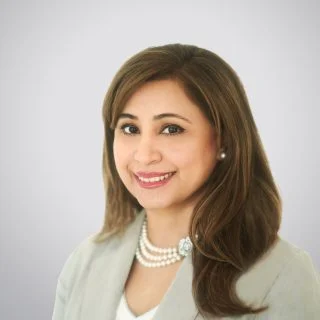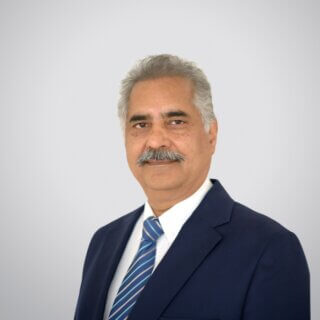Lower Back Pain & Lumbar Spinal Treatment
The lumbar spine, also known as the lower back, consists of interconnecting bones, ligaments, nerves, joints and muscles that work together to support, strengthen and give flexibility. The lumbar spine carries the weight of the upper body, which makes it vulnerable to pain or injury or both. When injury, stiffness or inflammation occur on the lumbar spine, then this calls for a lumbar spinal treatment to alleviate the discomfort.
Causes of Lower Back Pain
Causes of lower back pain can be categorized as:
- Mechanical, which means the lower back pain is triggered by spinal movement and involves spinal structures, such as the vertebral bodies (vertebrae), intervertebral discs, facet ligaments, muscles or soft tissues.
- Organic: This type of lower back pain is caused by disease, such as spinal cancer.
- Idiopathic: The cause is unknown.
The causes of lower back pain include:
- Sprains and strains: Ligament sprains and tendon or muscle strains are related to overuse.
- Degenerative disc disease: Over time the discs can become thinner and flatter due to wear and tear resulting in pain and leaving them less able to cushion the vertebrae.
- Herniated disc: Over time the protective covering of the intervertebral discs can tear causing the inner soft disc tissue to push through the outer layer. This is known as the herniated disc, bulging disc or slipped disc. The herniation can press on the nerve roots resulting in symptoms such as tingling, pain, weakness or numbness.
- Sciatica: This is pain resulting from an irritated or pinched sciatic nerve. This is the nerve that runs down the lower back through the hips, buttocks and down each leg. Another term for it is lumbar radiculopathy.
- Spondylolisthesis: This occurs when the vertebra slides forward and out of position disrupting the spine’s alignment and can also compress on the nerve roots. The slippage is often caused by either a fractured vertebra (spondylolysis) or disc degeneration.
- Spinal stenosis: This is the narrowing of the inside spaces of the spine which can be caused by a herniated disc or bone spurs caused by spinal osteoarthritis. This can result in painful pressure on the spinal nerves.
Other causes of lower back pain include:
- Abnormal Spinal curvature
- Arthritis: Inflammation of the joints
- Fibromyalgia: Long-term tenderness and pain in the joints, tendons and muscles
- Spondylitis: Inflammation of the joints between the spinal bones
- Spondylosis: A degenerative condition that may cause loss of normal spinal structure and function
Diagnosis of Lower Back Pain
Lumbar spinal diagnosis begins with a complete medical history inquiry and a physical examination to determine the area of the pain and if the pain is affecting the patient’s range of motion.
Imaging tests such as X-rays, ultrasounds CT scans and MRI’s may be done so the doctor can check for disc problems, bone problems and problems with the tendons and ligaments on the back.
The doctor may order an Electromyography (EMG) or nerve conduction tests if he/she suspects a problem with the strength of the bones in your back.
Treatment of Spinal Lumbar
Treatment for spinal lumbar includes:
- Medication such as:
- Muscle relaxants
- Nonsteroidal anti-inflammatory drugs (NSAIDs)
- Steroids to reduce inflammation
- Narcotic drugs
- Corticosteroid injections
- Physical therapy
- Stretching
- Massage
- Strengthening exercises
- Back and spinal manipulation
Surgery
Surgery is only necessary for severe cases and when all the other treatments have failed. However, if there is loss of bladder or bowel control, or a progressive neurological loss, surgery becomes an emergency option.
Types of surgery for lumbar spinal treatment include:
- Discectomy: This relieves pressure from a nerve root that is pressed on by a bone spur or a bulging disc. It involves the removal of a small piece of the lamina which is the bony part of the spinal canal.
- Foraminotomy: A surgical procedure that opens up the bony hole in the spinal canal, known as the foramen, where the nerve root exits.
- Spinal fusion: This cuts down on painful motion and makes the spine stronger. It involves removing the discs between two or more vertebrae and fusing the vertebrae next to each other with special metal screws or bone grafts.
NOTE: Duration of the procedure, downtime, and recovery vary on a case by case basis
Next Step
At King’s College Hospital Dubai, we focus on offering an exemplary service, from initial consultation through to final diagnosis and treatment and beyond. Our multidisciplinary team of expert doctors, nurses, physio therapists are here to offer tailored management and treatment of your condition, and to answer any questions that you might have throughout your time with us. Whatever you need us for, we’re only a phone-call away.
Faqs
الأسئلة الأكثر شيوعا
Dr. Imtiaz Hashmi & Dr Nicandro Figueiredo are considered as the best Spine Surgeons in Dubai.
BOOK AN APPOINTMENT




